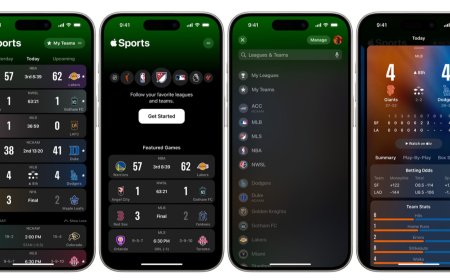Can Dogs Eat Mango? A Comprehensive Guide
Explores whether dogs can safely eat mango, sweet and delicious tropical fruit. The nutritional value of mango, the benefits and potential risks of it.

Can Dogs Eat Mango? A Comprehensive Guide
Mango is a sweet and delicious tropical fruit that is loved by many humans, but can dogs safely eat it? As a responsible pet owner, it's important to know what foods are safe and healthy for your furry friend. In this article, we will answer the question "can dogs eat mango?" and provide you with all the information you need to know.
Nutritional Value of Mango
Mango is a rich source of vitamins, minerals, and antioxidants that can provide several health benefits to humans. It contains high levels of vitamin C, vitamin A, and beta-carotene. Mango is also a good source of fiber and potassium.
Mango Benefits for Dogs
While there is no scientific evidence to suggest that mango is beneficial for dogs, it can still provide some health benefits. Mango contains antioxidants that can boost your dog's immune system and protect them from disease. It is also a good source of fiber that can improve digestion and prevent constipation.
1. Nutritional Value
Mango is packed with vitamins, minerals, fiber, and antioxidants, which can all provide nutritional benefits to dogs. Mango is a good source of vitamin A, vitamin C, potassium, and fiber, which can help to support overall health and wellbeing. Vitamin A is important for eye health, while vitamin C is important for immune function. Potassium is important for heart health and blood pressure regulation, while fiber is important for digestive health.
2. Anti-Inflammatory Properties
Mango contains several compounds, such as quercetin and mangiferin, that have been shown to have anti-inflammatory properties. Inflammation can be a contributing factor to several health problems in dogs, including arthritis and other joint issues, skin allergies, and digestive problems. Feeding your dog mango may help to reduce inflammation and alleviate some of these issues.
3. Improved Digestive Health
Mango contains digestive enzymes, such as amylase and protease, which can help to improve the digestive health of dogs. These enzymes can help to break down proteins, carbohydrates, and fats, which can make it easier for dogs to digest their food and absorb the nutrients they need.
4. Promotes Hydration
Mango is a good source of water, which can help to promote hydration in dogs. Adequate hydration is important for maintaining healthy kidney function, regulating body temperature, and supporting overall health and wellbeing.
5. Low in Calories
Mango is relatively low in calories, with a 100-gram serving containing approximately 60 calories. This makes it a good snack option for dogs who need to maintain a healthy weight or lose weight.
While mango can offer several potential health benefits for dogs, it's important to feed it in moderation and to take note of any potential digestive issues or allergic reactions. Mango should always be washed and peeled before feeding to dogs, and the pit should be removed, as it can be a choking hazard. As with any new food, it's always a good idea to introduce it gradually to see how your dog reacts to it.
Potential Risks of Mango for Dogs
- While mango can be a healthy addition to your dog's diet, there are also some potential risks to be aware of. Mango contains high levels of natural sugar, which can be harmful to dogs if consumed in large quantities. It can also cause digestive upset and diarrhea if your dog eats too much of it.
- Another potential risk is the risk of digestive upset. Mango contains natural sugars and fiber, which can be difficult for some dogs to digest. This can lead to symptoms such as diarrhea, vomiting, and bloating. If your dog has a history of gastrointestinal issues, it may be best to consult with your veterinarian before introducing mango or any other new food into their diet.
- Additionally, mango is a relatively high-calorie fruit, which can be a concern for dogs who are overweight or prone to weight gain. It's important to feed mango in moderation and to consider its calorie content when calculating your dog's daily calorie intake.
- Another potential risk of feeding mango to your dog is the pit or seed. The pit can be a choking hazard for dogs, and it can also cause an intestinal blockage if ingested. It's important to remove the pit and skin before feeding mango to your dog.
- Some dogs may also be allergic to mango, so it's important to monitor your dog closely after feeding them mango for the first time. Signs of an allergic reaction may include vomiting, diarrhea, itchiness, and difficulty breathing.
How to Feed Mango to Your Dog
If you decide to feed your dog mango, it's important to do so in moderation. Start with small amounts and gradually increase the portion size to see how your dog reacts. You can feed mango as a treat or mix it with your dog's food.
Before feeding mango to your dog, remove the pit and skin. Cut the mango into small pieces to make it easier for your dog to chew and swallow. You can also freeze mango pieces for a refreshing summer treat.
Other Fruits That Dogs Can Eat
If you're looking for other fruits to feed your dog, there are several options that are safe and healthy. Some examples include:
-
Apples: Apples are high in fiber and low in fat, making them a healthy snack for dogs. However, it's important to remove the seeds and core, as these can be choking hazards.
-
Bananas: Bananas are high in potassium, fiber, and vitamin C, making them a nutritious snack for dogs. They should be given in moderation, as they are also high in sugar.
-
Blueberries: Blueberries are packed with antioxidants, fiber, and vitamins. They make a great treat for dogs and can also help improve cognitive function.
-
Pineapple: Pineapple is high in vitamin C and fiber, and can help aid in digestion. However, it should be given in moderation, as it is also high in sugar.
-
Watermelon: Watermelon is a refreshing and hydrating snack for dogs, and is low in calories. It's important to remove the seeds and rind before feeding it to your dog.
-
Strawberries: Strawberries are high in fiber, vitamins, and antioxidants, and make a great snack for dogs. They should be given in moderation, as they are also high in sugar.
-
Oranges: Oranges are high in vitamin C and fiber, and can help boost your dog's immune system. However, they should be given in moderation, as they are also high in sugar.
It's important to note that while these fruits are generally safe for dogs to eat, they should be given in moderation and under supervision. It's also important to remove any seeds or pits that could be choking hazards, and to wash the fruit thoroughly to remove any pesticides or other contaminants. If you have any concerns or questions about feeding fruit to your dog, it's always best to consult with your veterinarian.
Conclusion
In conclusion, mango can be a healthy addition to your dog's diet if fed in moderation. It contains several vitamins and minerals that can provide health benefits, but it's important to be aware of the potential risks. Always remove the pit and skin before feeding mango to your dog, and monitor their reaction to ensure that they don't experience any digestive upset or allergic reactions.
More Dog related topics
How to Prevent Dog Coughing: Tips and Strategies
What's Your Reaction?





















































